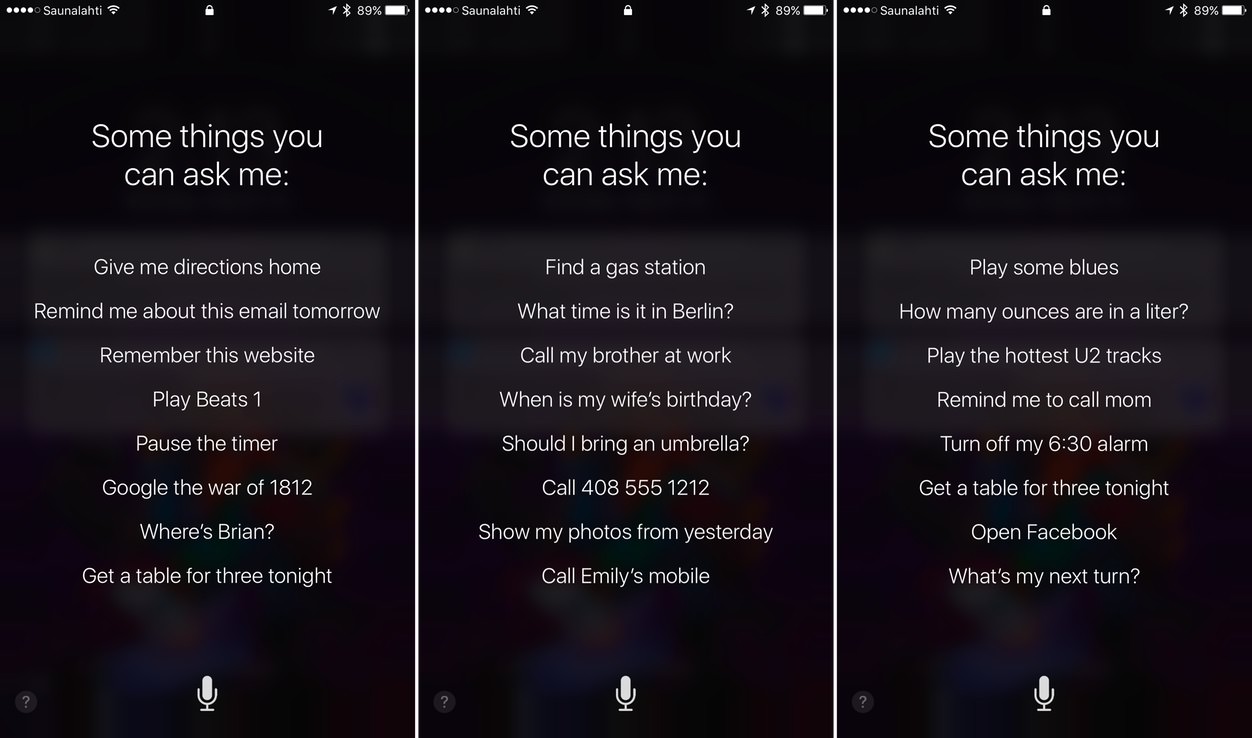„Voice and the uncanny valley of AI“
This tends to point to the conclusion that for most companies, for voice to work really well you need a narrow and predictable domain. You need to know what the user might ask and the user needs to know what they can ask. This was the structural problem with Siri – no matter how well the voice recognition part worked, there were still only 20 things that you could ask, yet Apple managed to give people the impression that you could ask anything, so you were bound so ask something that wasn't on the list and get a computerized shrug.
Im direkten Vergleich mit Google schneidet Siri nicht auffällig schlechter ab. Die Antwortqualität ist aber weitgehend egal, wenn man nicht zuerst weiß welche Fragen Siri tatsächlich versteht.
Fünfeinhalb Jahre nach dem iPhone 4s, das Siri präsentierte, hat sich daran wenig getan. Sprachbefehle für Siri muss man größtenteils immer noch ausprobieren. Und dieser Trial & Error-Grundsatz ist wenig motivierend.

Meanwhile, voice is not necessarily the right UI for some tasks even if we actually did have HAL 9000, and all of these scaling problems were solved. Asking even an actual human being to rebook your flight or book a hotel over the phone is the wrong UI. You want to see the options. Buying clothes over an IVR would also be a pretty bad experience. So, perhaps one problem with voice is not just that the AI part isn't good enough yet but that even human voice is too limited. You can solve some of this by adding a screen, as is rumored for the Amazon Echo – but then, you could also add a touch screen, and some icons for different services. You could call it a 'Graphical User Interface', perhaps, and make the voice part optional…
As I circle around this question of awareness, it seems to me that it's useful to compare Alexa with the Apple Watch. Neither of them do anything that you couldn't do on your phone, but they move it to a different context and they do it with less friction – so long as you remember. It's less friction to, say, set a timer or do a weight conversion with Alexa or a smart watch, as you stand in the kitchen, but more friction to remember that you can do it. You have to make a change in your mental model of how you'd achieve something, and that something is a simple, almost reflexive task where you already have the muscle memory to pull out your phone, so can this new device break the habit and form a new one? Once the habit or the awareness is there then for some things a voice assistant or a watch (or a voice assistant on a watch, of course) are much, better than pulling out your phone, but the habit does somehow have to be created first.
Wir sollten obendrein die Attraktivität, die ein eigenes Smartphone oder die persönliche Watch ausübt, nicht unterschätzen.
Digitale Assistenten in Form von kleinen Zylindern, die sich frei in der Wohnung verteilen und jedem zuhören, der das richtige Codewort sagt, sind extrem unpersönlich.
Es ist vielleicht nur irritierend, wenn Gäste eure Lampen ein- und ausschalten. Es ist jedoch schlicht abtörnend, wenn diese Besucher sich mit einem Kommando auch meine Mails und Nachrichten vorlesen lassen (könnten).
Ich halte die meisten Haushalte deshalb noch für weitgehend inkompatibel zu Google Home oder Amazon Echo.